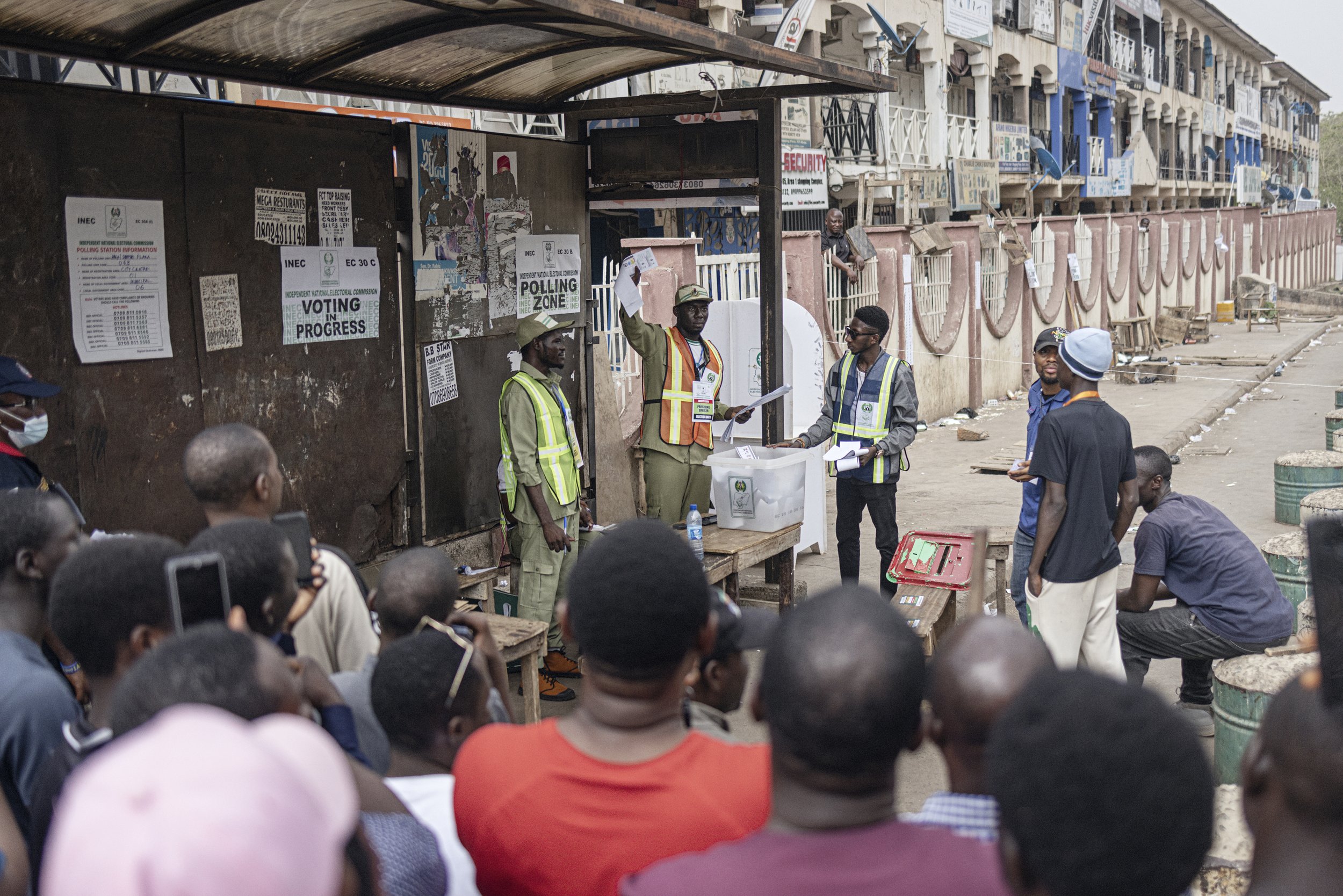2023 Nigerian Elections
© Michele Spatari / Agence France-Presse
A lot was at stake for Africa’s most populous country, biggest economy, and largest oil producer., in its 7th presidential election since the 1993 military coup.
West Africa's economic powerhouse, Nigeria is the continent's most populous country, with around 215 million inhabitants. By 2100 it is forecast to be the world's second most populous country, with Lagos the biggest city on the planet. Home to about 250 ethnic and linguistic groups, Nigeria is almost evenly split between a Muslim north and a Christian south.
Almost 25 million people casted a ballot on the 25th of February, in a vote that was largely peaceful but marred by long delays and the slow arrival of online results, angering voters and opposition parties who claimed massive vote-rigging. The ballot pitted former Lagos governor of the ruling All Progressives Congress (APC) Bola Tinubu against former vice president and main opposition candidate, Peoples Democratic Party (PDP) leader Atiku Abubakar, and a surprise third party candidate, Labour Party's Peter Obi, who excited younger voters with his campaign of change.
Tinubu, a political kingmaker whose influence earned him the nickname "Godfather of Lagos", is set to succeed two-term President Muhammadu Buhari, who steps down in May. He faces immense security and economic challenges in Africa's most populous country.






























